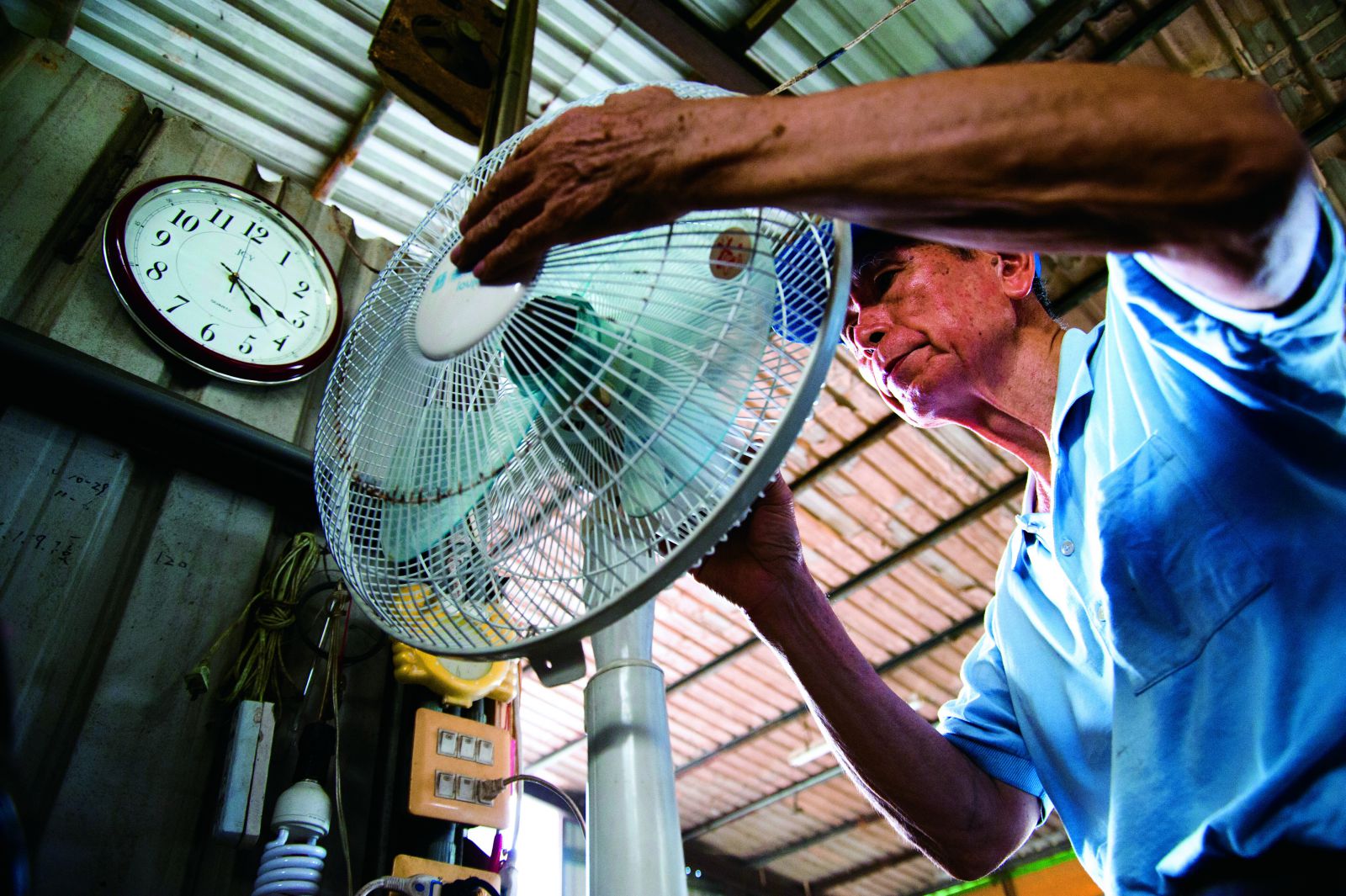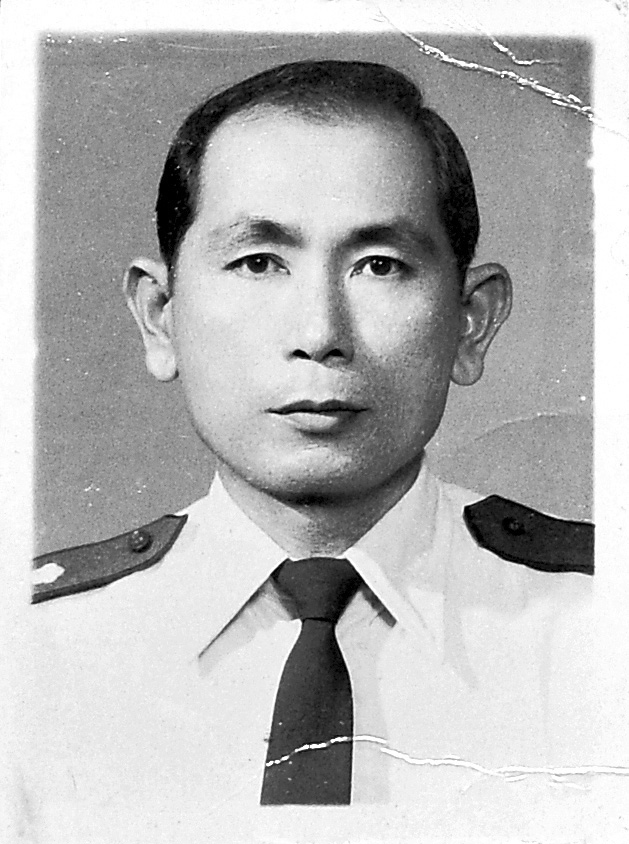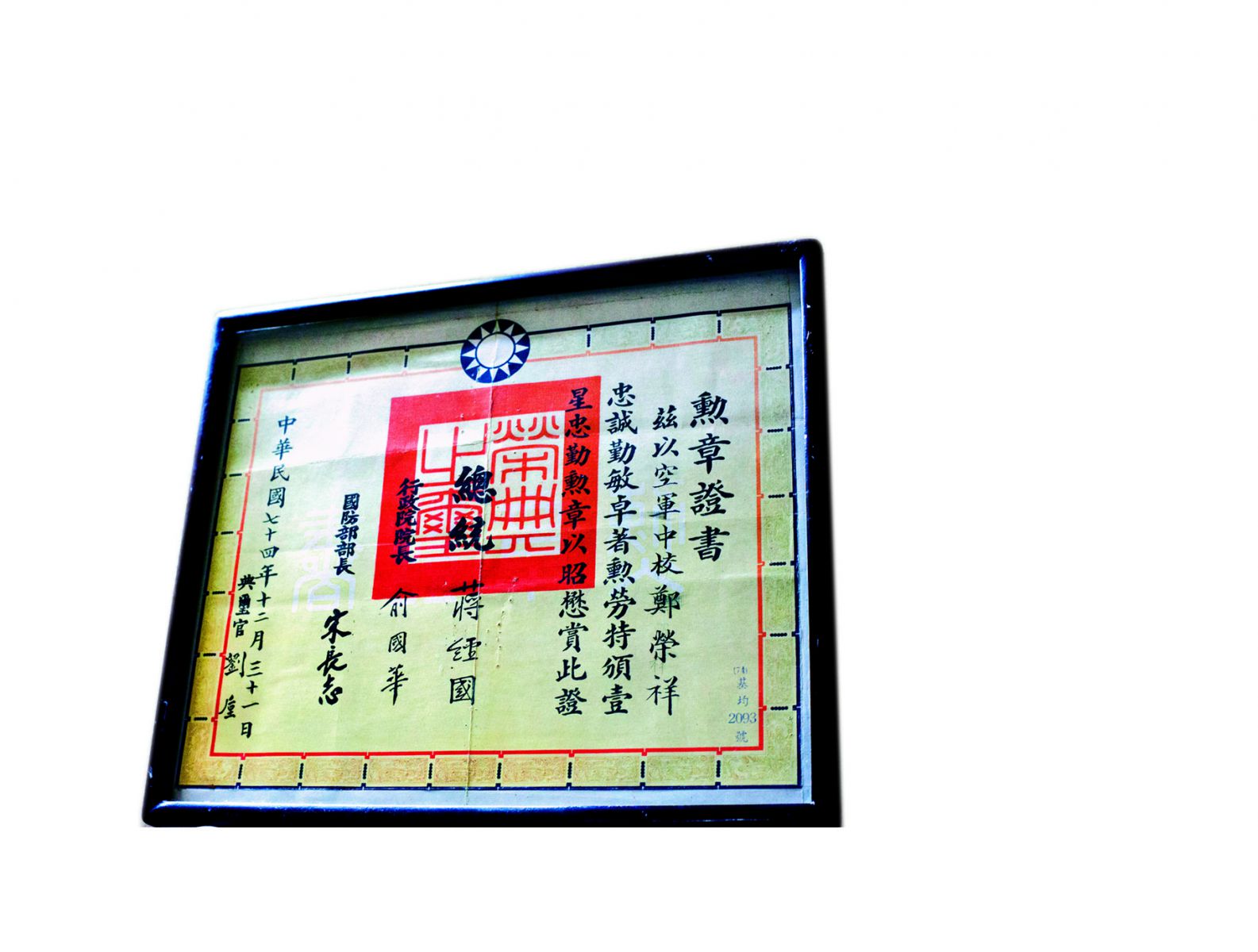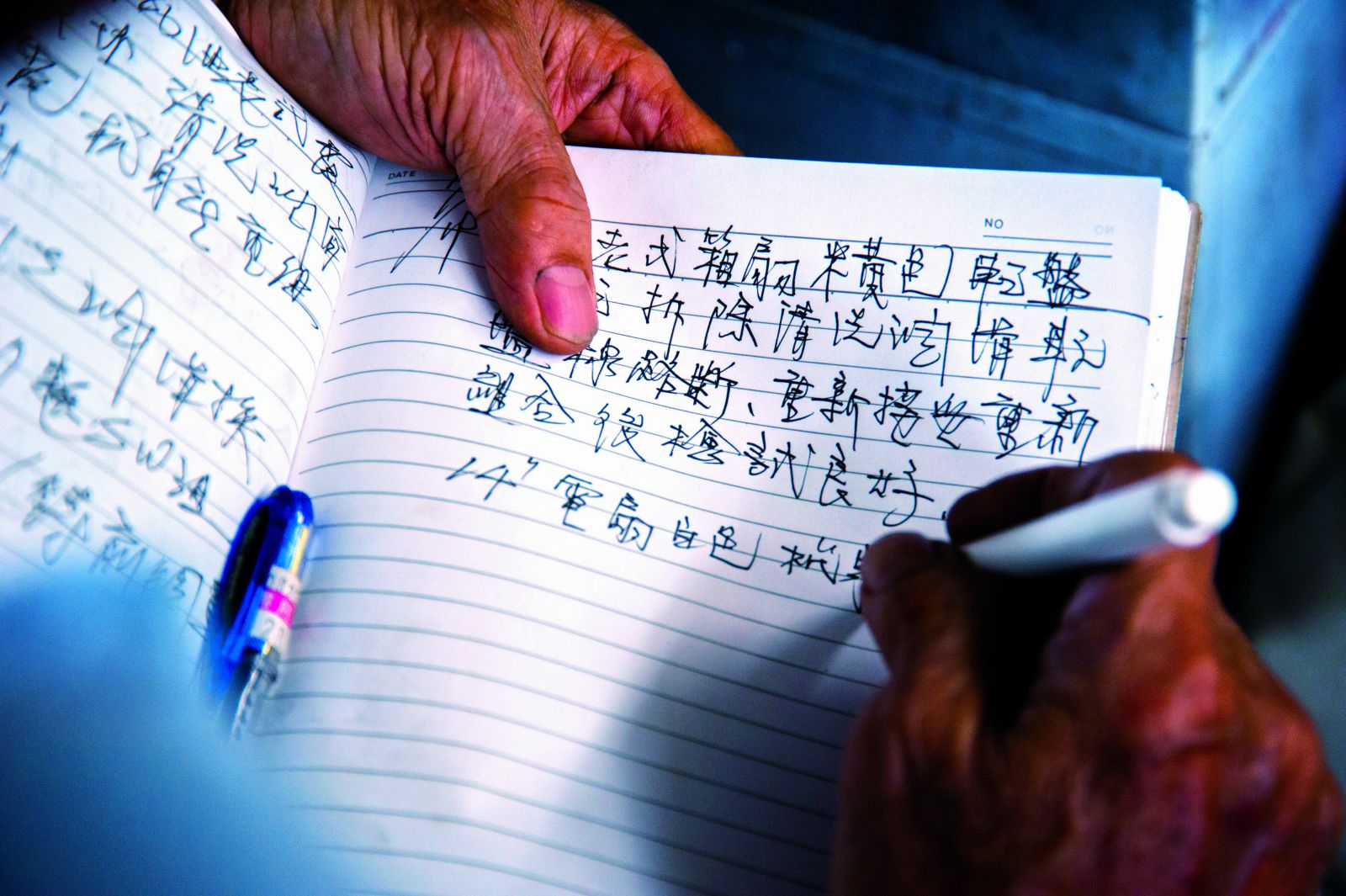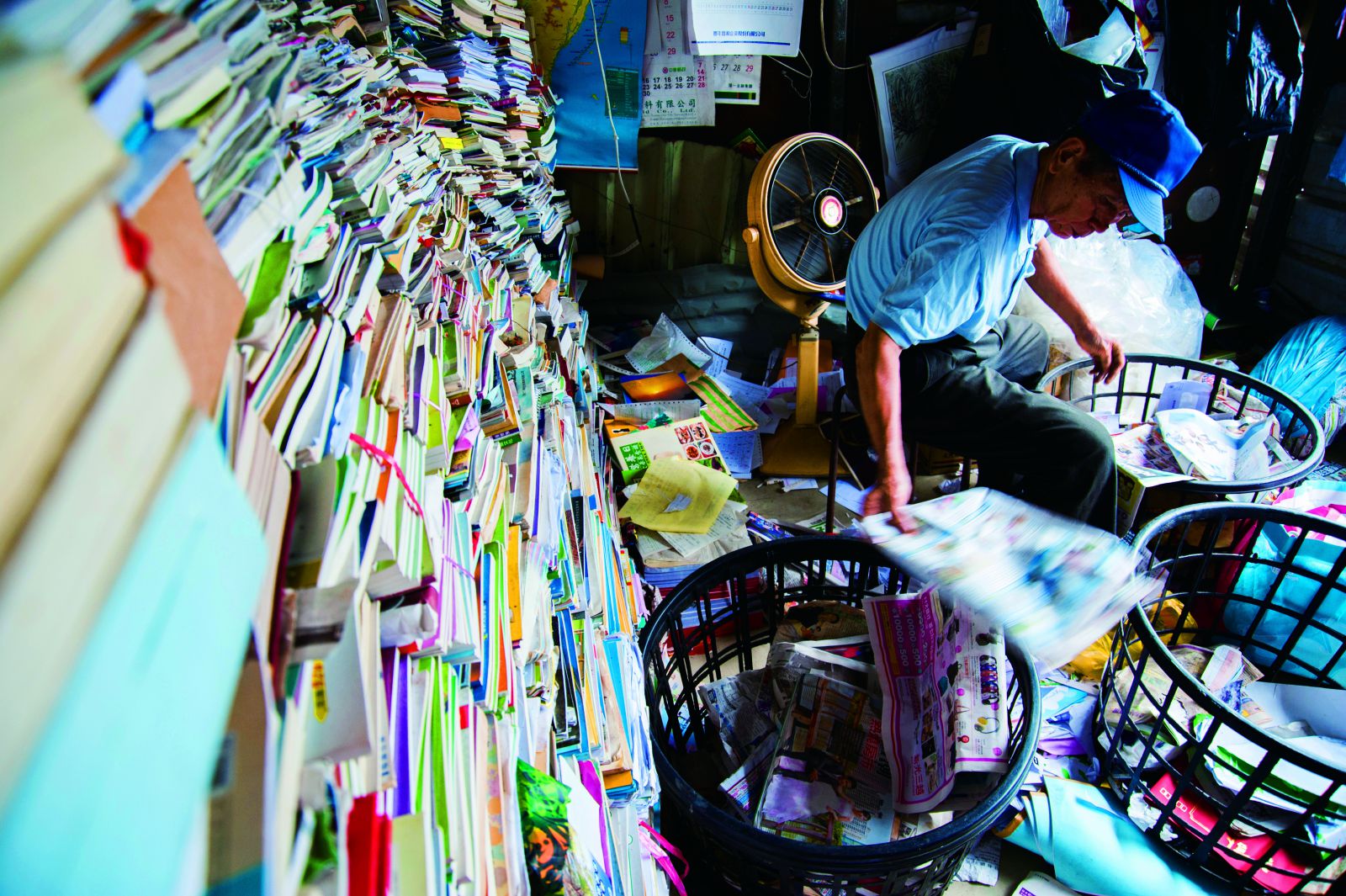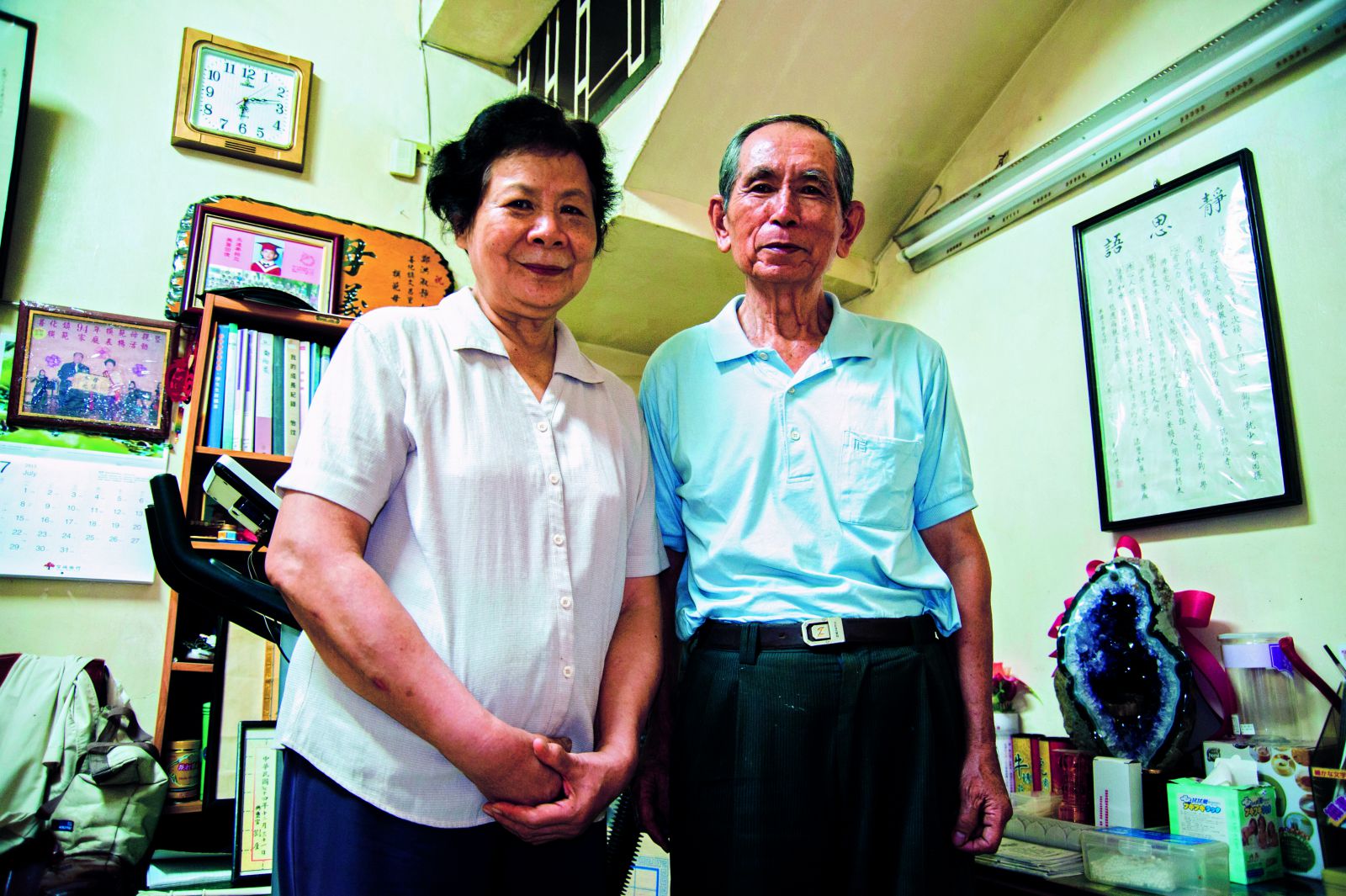

| Proudly Guaranteed | |||||||||
| By Huang Hui-zhu Translated by Tang Yau-yang Photos by Huang Xiao-zhe | |||||||||
From fixing military airplanes to electric fans, he is the same conscientious master repairman. He returns broken things to life, and his undertakings add meaning to his own life.
The cicada songs ringing from the trees added a sense of life to an otherwise indolent summer afternoon. An old woman carrying an electric fan walked out of the sunshine and into the Tzu Chi Shanhua Recycling Station in the southern city of Tainan, Taiwan. The broken top of the fan swayed back and forth in rhythm with her slow steps. “I’ve got a fan for you to fix,” she said, smiling to a man whom she apparently knew well. The man, Zheng Rong-xiang (鄭榮祥), knew right then that she was there to trade her broken electric fan for a new one—although “new” was quite a relative term at the station, referring to the repaired and refurbished fans that had once been broken or blemished themselves. Zheng has fixed many electric fans and put them back into circulation in the rustic, simple town of Shanhua. The recycled fans have worked well, and so they have earned a good reputation in the town through word of mouth. In response to the old woman’s request, Zheng put down the fan he was repairing, wiped the sweat off his brow, and led her through the recycling station to the thrift shop in the back. Fans of various styles, sizes, and colors greeted their eyes. Whatever their original brand names, all of these fans were now considered EP-branded—EP for environmental preservation. If not repaired by Zheng and put back into use, these fans would have either gone straight to landfills or been taken apart and then recycled. As they browsed through the thrift shop to pick out another fan for her, he asked the old woman how the other fans that she had gotten from him before were working. “Very nicely, indeed,” she replied. “They’re cheap but good. They blast out a good, strong wind. I appreciate your help.” The woman was obviously a good patron of the fans that he fixed up for the thrift shop. She eventually settled on a light, bright desktop model that had been repainted. Zheng plugged it into an outlet, turned it on, and put it through a cycle of operation to ensure that it was in good working condition. Satisfied, he put the fan in her hands. The old woman smiled as any happy shopper with a great bargain in hand would. After the woman had made a small donation to Tzu Chi and left the store, Zheng returned to his workstation and continued with his routine of diagnosing, searching for parts, and returning fans to service. He always works with his typical but rigorous mindfulness. Only after a fan is fully operational will he bring it into the showroom. He backs all his work with a one-year replacement warranty against malfunction. He never thought that he would be a professional fan repairman, much less that his efforts would help a charity foundation to do good. In retrospect, the seed for all this was probably planted in his other “fix-it” career several decades ago. His early years Zheng was born in 1937 to a farming family in Tainan. After graduating from junior high school, and before knowing what step to take next, he learned that the Air Force Mechanical School—which was later merged into the Air Force Institute of Technology—was accepting applications for enrollment. He turned in his transcript and was accepted for admission, which surprised even himself. He knew little about the new school, but just like that, at 16 years of age, he had started his military career. As it turned out he focused on mechanical repair at the school, and after graduation he worked to repair military aircraft. Zheng had already graduated from the military school and been assigned to a base when hostilities between Taiwan and mainland China erupted on August 23, 1958. The Chinese Communists launched an intense artillery attack against Quemoy, a small archipelago of several islands administered by the Republic of China (Taiwan). The R.O.C. troops on Quemoy returned fire. The heightened tensions resulted in many military air sorties over the Taiwan Strait. When the airplanes returned to the base where Zheng worked, they had to be refueled in a flash and made ready for another mission. Zheng was on the refueling team. Working on such a mission-critical job when he was still very young gave him a tremendous sense of responsibility. Later in his military career, he maintained and repaired fighters and bombers. These were significant responsibilities, as the safety of the pilots and crews was of paramount importance. In order to keep them safe, he had to keep himself safe first. The very first move that he always made before working on an aircraft was to unload the ammunition from the machine guns on board, as those were always loaded and ready to fire. Once a pilot noticed an abnormal jiggling of the pressure gauge needle on one of the engines, and he reported the situation when he landed. Zheng and a colleague crawled into the air inlet duct located in the belly of the airplane to investigate the source of the trouble. The duct was small and dark. The two of them busied themselves inside, anxious to resolve the problem. Even though they didn’t have a clue what might be wrong, it was imperative that they find the root cause of the problem. Even a loose screw could take down the plane. Years of experience led Zheng to suspect that the problem lay in the transmission, so they removed the old one and put in a new one. That didn’t take care of the problem, so they swapped it out and put in yet another one. Still the problem persisted. Finally, after crawling in and out of the air inlet duct all day long, they nailed the problem by putting in the fourth new transmission. It was through trials and errors like that in the Air Force that Zheng learned to be extremely patient and mindful of details, as well as to be circumspective and conscientious. From 1950 to 1965, when Taiwan was receiving aid from the United States, the Taiwanese government advocated conservation and demanded that all parts removed from airplanes not be discarded, but be kept in each repairman’s designated storage area.This stringent mandate caused Zheng no trouble whatsoever. What the government required was only what his parents had long before taught him to do: lead a simple and thrifty life. Zheng had long since formed the habit of cherishing and conserving resources, so it was no surprise that his storage area always had the most spare parts, each one precious to him and ready to be put to use.
The volunteer Zheng retired from the military when he was 48 years old, but he continued to work for private companies. He often picked up recyclables and delivered what he had gathered to a nearby Tzu Chi recycling station before going to work. His wife, Hong Shu-jing (洪淑靜), volunteered at the recycling station. When Zheng retired from the workforce in 1999, he began volunteering at the recycling station with his wife. They were short of help back then, so he would also ride on a truck and help pick up recyclables at collection points. It was not uncommon for him to see brand-new clothes, shoes, or notebooks among the things he collected. Being a thrifty person, he himself began using almost exclusively salvaged clothes and shoes. “Many electric fans that we collected were only slightly broken, but people just threw them away,” said Chen Zhao-xiong (陳昭雄), a long-time volunteer. “It was quite a pity.” For example, one unit that he had seen at the recycling station carried a price tag of 40 to 50 American dollars. The only thing wrong with it was the transformer, something that the recycling station had plenty of. It was this that made him start wondering whether he should get someone to repair broken fans. He thought of Zheng, who had shown himself to be conscientious and responsible. Zheng considered Chen’s proposition, and he thought that even though he had no experience in repairing electric fans, his extensive experience in fixing aircraft could come into good use. It turned out that he was indeed quite good at it. He said that the principles of repairing an airplane could be applied to fixing an electric fan. Though much smaller, an electric fan also possesses a complete electric system. Even one wire that was connected wrong could cause the motor to burn out.
He set up an area in the recycling station for electric fans. This area is like a miniature hardware store where he has categorized similar items in the same section—blades, outer wire-mesh cover, base units, and nuts and bolts are all neatly put in their proper places. This orderly categorization helps him easily find the parts that he needs. He treats fans with the same attentiveness as he did aircraft, though they are drastically different in size and mass. Over the years, he has accumulated enough experience to be able to quickly pinpoint a problem just by plugging a broken unit into an electrical outlet and seeing how it responds. After he has fixed and tested a fan, he gives it a good wipe with soapy water made with discarded shampoo that has ended up at the recycling station. If the exterior shows any signs of rust, he spray-paints it with reclaimed can spray, also available at the station. After the makeover, the unit is like new, as far as a pre-owned item goes. He often shares maintenance tips with people. For example, lubricating the rotating axis regularly can help extend the useful life of a fan, or else the axis may rust and get stuck. He also tells them never to wash a motor or spray water on the whole fan. When the weather gets hot, people snap up the fans quickly, leaving the shop without any at all until more units go through Zheng’s hands. With the quality of his fans winning him a wide following, the thrift shop circulates an average of 300 fans a year. Chen Zhao-xiong, who recruited Zheng for the fan-repairing project, got one a dozen years ago. It cost him a donation to Tzu Chi of only three American dollars. The fan has worked reliably for him ever since.Electric fans are not the only thing that Zheng can fix. He has also given new life to other small appliances, such as desk lamps, mosquito zappers, and blenders.
A constant presence Zheng spends more time at the recycling station than at home, going there every day of the year except the Chinese New Year holiday. He reports to the station at eight o’clock in the morning, seven days a week. The mornings are spent sorting out paper products like books, magazines, and newspaper. The afternoons are for repairing things. He goes home at around five o’clock. He worries that if he were to miss a day’s work, the paper products would pile up mountain high. That’s why he almost never takes a day off from his work at the recycling station. He goes there even through heavy rains or typhoons, as long as he can safely ride his motor scooter to the station, about ten minutes from his home. Over the years, he has been a constant presence at the station. “It’s a blessing that I’m still able to do things,” Zheng said. “It means that I’m still healthy. Coming here has become a routine for me, and I would feel ill at ease if I didn’t come.” He added that the work at the station allows him to do the Earth a good turn while giving him a chance to work his brain at the same time. It beats staying home watching TV, dozing off, or getting bored. He cherishes his golden years. Some people may feel that after working all their lives, they deserve to treat themselves to some easy time, see the world, and enjoy themselves. But taking trips to see the world does not appeal to the thrifty Zheng. He thinks such journeys are physically tiresome, wasteful, and not worthwhile. He is interested only in doing Tzu Chi work, and this he has done for more than a decade as a devoted, well-qualified volunteer. He became a certified Tzu Chi volunteer at the end of 2012.Time has flown by so fast. Zheng still remembers himself as that teenager who applied for admission into the Air Force Mechanical School. Now, seemingly in just the twinkling of an eye, he has grown old and grey-haired. Looking at the fan in his hand that he was working on, he smiled. He felt exactly like the used fan—receiving a second life in Tzu Chi. He was glad that he had been “recycled” by the foundation after he retired from work, and that he could continue to serve society by turning useless things into useful resources.
|














|

